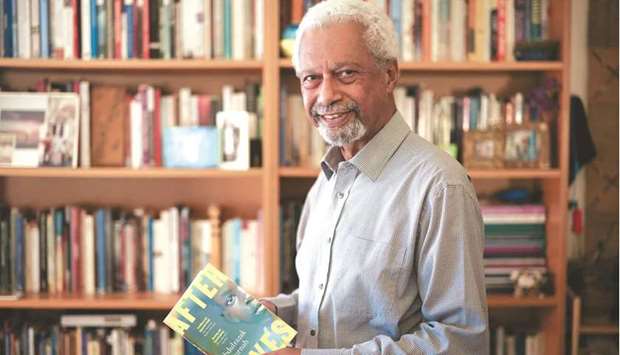Tanzania-born novelist Abdulrazak Gurnah has won the Nobel Literature Prize for his unflinching portrayal of the effects of colonialism and the trauma of the refugee experience.
Gurnah, 72, who grew up on the island of Zanzibar but arrived in England as a refugee in the late 1960s to escape revolution, is the fifth African to win the Nobel Literature Prize.
The Swedish Academy said yesterday that Gurnah was honoured “for his uncompromising and compassionate penetration of the effects of colonialism and the fate of the refugee in the gulf between cultures and continents”.
The head of the Academy’s Nobel committee, Anders Olsson, said his writings had particular resonance with a record 82mn people fleeing wars, persecution and violence in 2020.
Gurnah told the Nobel Prize website that he was stunned to get the call from the Swedish Academy.
“I thought it was a prank,” he said. “These things are usually floated for weeks beforehand ... so it was not something that was in my mind.”
He has published 10 novels and a number of short stories.
“In all his work, Gurnah has striven to avoid the ubiquitous nostalgia for a more pristine pre-colonial Africa,” the Academy said.
His itinerant characters “find themselves in a hiatus between cultures and continents, between a life that was and a life emerging; it is an insecure state that can never be resolved”, it added.
The theme of the refugee’s disruption runs throughout his work, with a focus on identity and self-image, also apparent in the 1996 novel Admiring Silence and By the Sea from 2001.
Tanzania hailed his win yesterday as a “victory” for the country and the African continent.
“You have certainly done justice to your profession, your victory is for Tanzania and Africa,” the government’s spokesperson said on Twitter.
After his win, Gurnah urged Europe to see African refugees as people who “come out of need” and who “quite frankly ... have something to give”.
“They don’t come empty-handed. Many are talented, energetic people who have something to give,” Gurnah told the Nobel Foundation in an interview.
Born in 1948, Gurnah fled Zanzibar in 1968 following the revolution there which led to oppression and the persecution of citizens of Arab origin.
He began writing as a 21-year-old in England.
Gurnah is best known for his 1994 breakthrough novel Paradise, set in colonial East Africa during World War I and which was shortlisted for the Booker Prize for Fiction.
Gurnah has until his recent retirement been Professor of English and Postcolonial Literatures at the University of Kent in Canterbury.
The Nobel Prize comes with a medal and a sum of 10mn Swedish kronor (about $1.1mn).
Last year, the award went to US poet Louise Gluck.
The Nobel season continues today in Oslo with the Peace Prize, followed Monday by the Economics Prize.

Abdulrazak Gurnah
